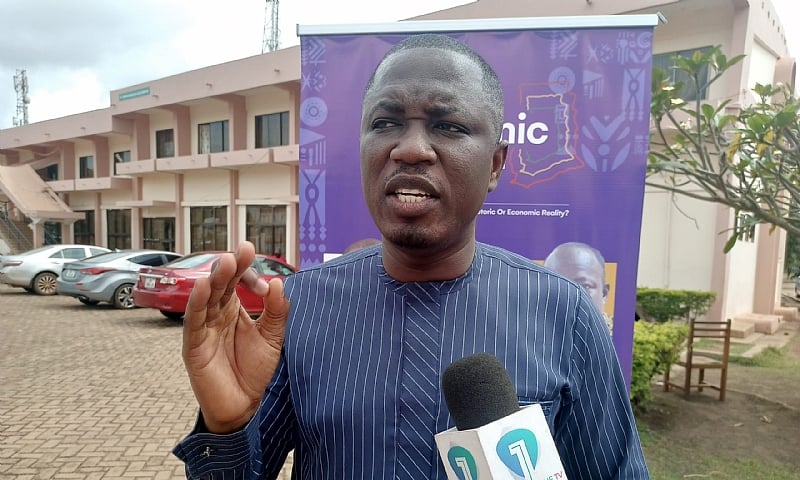Dr. Frank Bannor, the Head of Research at the Danquah Institute, has emphasized the urgent need for a Mining Development Bank to support indigenous small-scale mining companies in Ghana. This proposal aims to provide essential financial resources, such as soft loans and credit facilities, which would empower local miners and mining enterprises to contribute more significantly to the country’s economic growth. Dr. Bannor pointed out that the mining sector plays a crucial role in the national economy, having recorded an impressive growth rate of 9.3 percent in the third quarter alone. He shared these insights during a media interaction at an Economic Symposium organized by the ABC Newspaper in Sunyani, where discussions centered around enhancing public understanding of the economy and its dynamics.
Highlighting the immense potential of the gold mining sector, Dr. Bannor noted that Ghana’s gold reserves are valued at approximately $10 trillion. He advocated for increased participation of indigenous small-scale mining firms, asserting that it would allow the government to source gold directly from these companies, thereby bolstering the national gold purchasing program. Currently, he lamented, multinational corporations dominate the market, often neglecting local interests in favor of their own investment strategies. By shifting focus towards indigenous mining operations, the government could foster a more equitable framework that benefits the local economy.
Furthermore, Dr. Bannor stressed that equipping indigenous mining companies with adequate financial and technical resources would facilitate their transition from small to large-scale operations. This transition is crucial not only for the economic empowerment of these companies but also for the promotion of responsible mining practices. Enhanced support for local miners could lead to better management practices that mitigate environmental challenges, such as river pollution and deforestation. Dr. Bannor also suggested that increasing gold production through local entities could reduce the nation’s dependency on foreign currency reserves, allowing the government to leverage domestic gold for international transactions.
In the context of Ghana’s overall economic trajectory, Dr. George Domfe, a Development Economist and Senior Research Fellow at the Centre for Social Policy Studies, reported significant advancements in the country’s per capita income. Since 2016, per capita income has risen from $1,900 to $2,200, indicating a positive shift in economic performance. However, he acknowledged that the benefits of this growth are not uniformly distributed, as high inflation—currently at 20.3 percent—continues to affect the populace unevenly. Despite these challenges, Dr. Domfe maintained that the overall prospects for the country’s economy have improved compared to the past.
Mr. Gordon Asare-Bediako, the Managing Editor of ABC Newspaper, further underscored the importance of the economy within Ghana’s development agenda. Pointing out the necessity of expert analysis, he highlighted the need for collaborative efforts to assess current economic trends and present a coherent overview of the economic landscape. The symposium served as a platform for such discussions, engaging experts in a dialogue that seeks not only to evaluate the present state of the economy but also to devise strategies for sustainable growth moving forward.
In summary, the discussions led by Dr. Bannor, Dr. Domfe, and Mr. Asare-Bediako at the Economic Symposium reflect a collective effort to address pressing issues within the Ghanaian economy, particularly in the context of the mining sector. Establishing a Mining Development Bank emerges as a pivotal recommendation, with the potential to empower local miners, enhance responsible mining practices, and leverage domestic resources for economic stability. The dynamics of economic growth and distribution, as well as the role of expert analysis in guiding policy decisions, remain critical themes as Ghana aims to navigate its economic future amidst challenges.


